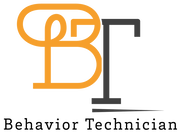Becoming a BTEC Council Member
The BTEC Council is inviting new advisory members for our 2020 – 2022 term to apply to join the Council.
We are looking for stakeholder involvement from consumers, providers, certificate holders, payers, professionals and advocates who want to make a difference in the training, education, and job readiness of entry level behavior technicians. In general these entry level behavior technicians are providing up to 80% of direct ABA Treatment and Services to individuals who have been diagnosed with Autism and related disabilities, therefore, it is critical that there is a mechanism by which capacity is built to ensure that this behavior technician workforce is qualified and has the requisite skills and competencies to meet the growing need of ABA Treatment and Services.
BTEC Council members will need to be able to attend quarterly meetings and advise the Behavior Technician Level One Certificate program management on issues integral to ensuring the BTL1 certificate is current, relevant, and valuable to its primary stakeholders. BTEC Council members may also be ask to attend meetings between those quarterly meetings if changes are proposed, a grievance has been submitted, or if there are any other events which may impact the integrity of the BTL1 Certificate Program.
BTEC Council members may also be asked to attend meetings between those quarterly meetings if changes are proposed, a grievance has been submitted, or if there are any other events which may impact the integrity of the BTL1 Certificate Program.
The BTEC Council provides input into, at minimum, the BTL1 certificate program (1) target audience, (2) purpose, (3) scope, (4) requisites, (5) term, (6) intended learning outcomes, and (7) instructional design plan.
The BTEC Council is an advisory group to the BTL1 Certificate program management under ANSI Standards for Certificate Programs E2659-18
We are looking for stakeholder involvement from consumers, providers, certificate holders, payers, professionals and advocates who want to make a difference in the training, education, and job readiness of entry level behavior technicians. In general these entry level behavior technicians are providing up to 80% of direct ABA Treatment and Services to individuals who have been diagnosed with Autism and related disabilities, therefore, it is critical that there is a mechanism by which capacity is built to ensure that this behavior technician workforce is qualified and has the requisite skills and competencies to meet the growing need of ABA Treatment and Services.
BTEC Council members will need to be able to attend quarterly meetings and advise the Behavior Technician Level One Certificate program management on issues integral to ensuring the BTL1 certificate is current, relevant, and valuable to its primary stakeholders. BTEC Council members may also be ask to attend meetings between those quarterly meetings if changes are proposed, a grievance has been submitted, or if there are any other events which may impact the integrity of the BTL1 Certificate Program.
BTEC Council members may also be asked to attend meetings between those quarterly meetings if changes are proposed, a grievance has been submitted, or if there are any other events which may impact the integrity of the BTL1 Certificate Program.
The BTEC Council provides input into, at minimum, the BTL1 certificate program (1) target audience, (2) purpose, (3) scope, (4) requisites, (5) term, (6) intended learning outcomes, and (7) instructional design plan.
The BTEC Council is an advisory group to the BTL1 Certificate program management under ANSI Standards for Certificate Programs E2659-18


